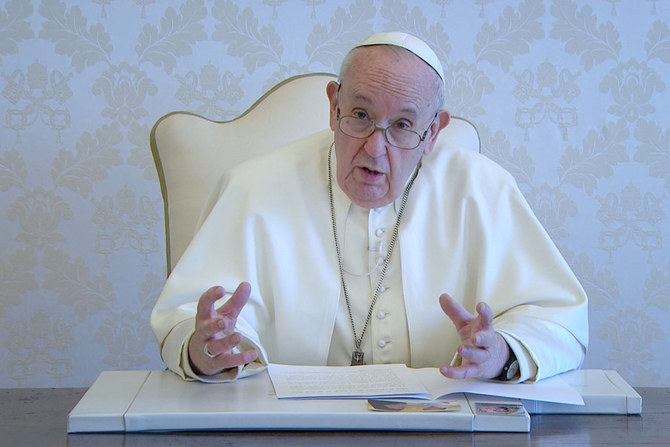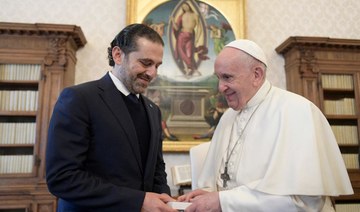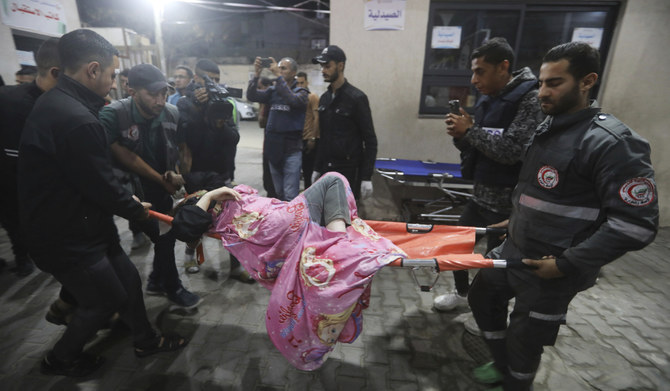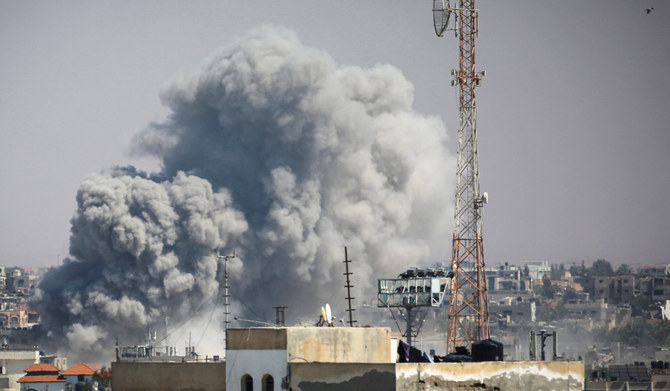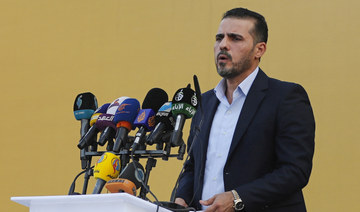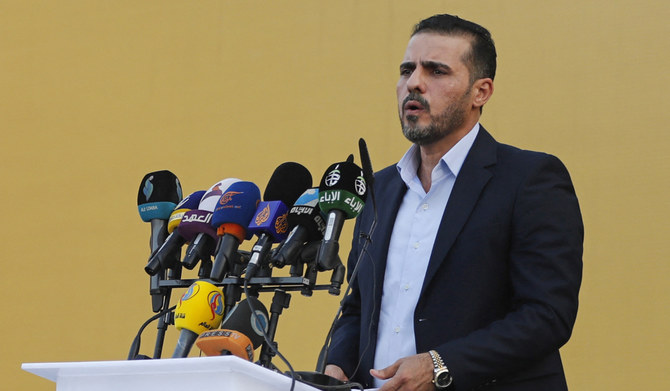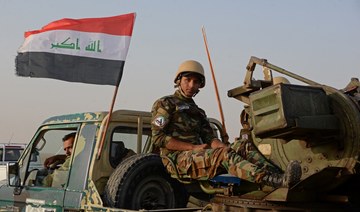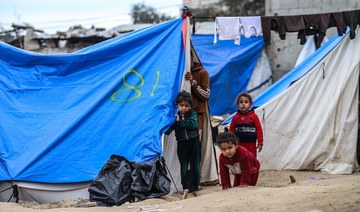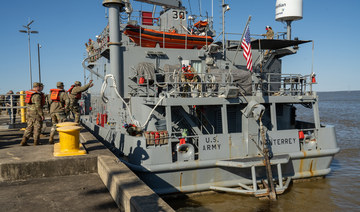BEIRUT: Lebanon’s Prime Minister-designate Saad Hariri is hoping a potential visit from Pope Francis to his fractured country will help political forces put aside their differences and finally form a government.
Hariri met with the pope in the Vatican on Thursday, along with other Italian leaders.
“The Vatican knows very well who is and who is not obstructing the government formation process,” said Hariri, who has been unable to form a government of non-partisan specialists in Lebanon since his appointment on Oct. 22.
Pope Francis confirmed he would visit crisis-hit Lebanon but only after its fractious politicians can agree on a new government.
Hariri has been in disagreement with President Michel Aoun and his political team, the Free Patriotic Movement (FPM), for months over naming Christian ministers. Aoun has insisted on having the blocking third in the government.
It was a quick visit to Italy but Hariri was very busy. He also met with Cardinal Pietro Parolin, Vatican secretary of state, and Archbishop Paul Richard Gallagher, secretary for relations with states. While in Rome, Hariri held meetings with Italian Prime Minister Mario Draghi and Luigi Di Maio, the country’s foreign minister.
Vatican spokesman Matteo Bruni said: “The pope met alone with Hariri for about 30 minutes and wanted to reaffirm that he is close to the Lebanese people, who are enduring extreme hardship and instability.”
The pope hoped, according to Bruni, that “with the help of the international community, Lebanon will be able to once again be the land of gathering, coexistence, and pluralism.” He stressed that “all political forces have the responsibility to urgently commit to all what benefits the country.”
After his meetings, Hariri said Pope Francis “was aware of the current problems in Lebanon and was understanding and encouraging that we can form a government. He also expressed his keenness to visit Lebanon, but only after the government is formed. This is a message to the Lebanese that we must form a government so that all powers and countries come together to help us.”
Hariri accused Hezbollah and the FPM, without explicitly naming them, of obstructing the formation of a new government.
“The dispute in Lebanon today is over two economic points of view,” Hariri said. “The first of which wants to have power over everything in the country, from the banking sector to the productive sector and telecommunications, under the pretext that they want to control it. The other team believes in a free economy and in communicating with all the world and not just with one, two, or three countries.
“We want a free economy and we want to work with the US, Europe, China, and Russia against a team that only wants to work with one side. There is a Lebanese group that supports the latter.”
Hariri stressed that the situation in Lebanon “is very bad, and forming a government will stop this collapse. There are those who are trying to prevent us from stopping this collapse in the first place because they want Lebanon to collapse so that they can stay in politics.”
Hariri indirectly criticized Aoun, saying: “Suggesting that I traveled abroad for the purpose of tourism offends the countries that I visit. Maybe they are on a tourist trip in the Baabda Palace.”
The one-on-one meeting between the pope and Hariri on Thursday was preceded by a meeting on Wednesday between Maronite Patriarch Bechara Al-Rai and Gebran Bassil in Bkerke.
Bassil implicitly declared after the meeting: “If Christ abandoned his message 2,000 years ago, there would be no Christians today. He bore witness to the truth, and we will continue to bear witness to the truth whatever the cost. We are sure that the cost is high, but we know that the truth will win in the end.”
Bassil’s statement was slammed on social media by his opponents, who criticized him for likening himself to Jesus Christ.
Meanwhile, Aoun reprimanded security services about how they dealt with the FPM supporters who accompanied the Mount Lebanon state prosecutor, Judge Ghada Aoun, when she raided the Mecattaf money exchange company on Wednesday.
The media bureau of the Baabda Palace said: “Aoun stressed the importance of respecting freedom of expression while protecting public and private property and not attacking them, as well as the importance of understanding the pain of the citizens, especially as they have lost their money and deposits. The security forces must maintain security peacefully in accordance with the laws in force and avoid repeating what happened.”
Caretaker Interior Minister Mohammed Fahmy said: “The internal security forces acted within the scope of policing and they did not attack private and public property.”
Judge Ghada Aoun, who defied the decision of the Supreme Judicial Council and the discriminatory public prosecutor to dismiss her from investigating a case related to financial transfers abroad, took computers and documents from the Mecattaf company office. She put them in her private car before leaving amid the support of FPM supporters and the astonishment of the judicial body and public opinion.
Samir Geagea, leader of the Lebanese Forces party, blamed the FPM and said: “Protecting the rights of Christians cannot be done by attacking and destroying private companies. Fighting corruption cannot be done by anonymizing the perpetrator in the electricity sector, communications, and customs, and at illegal crossings, nor can it be done by practicing clientelism in the state through discretionary and unjust methods.”



